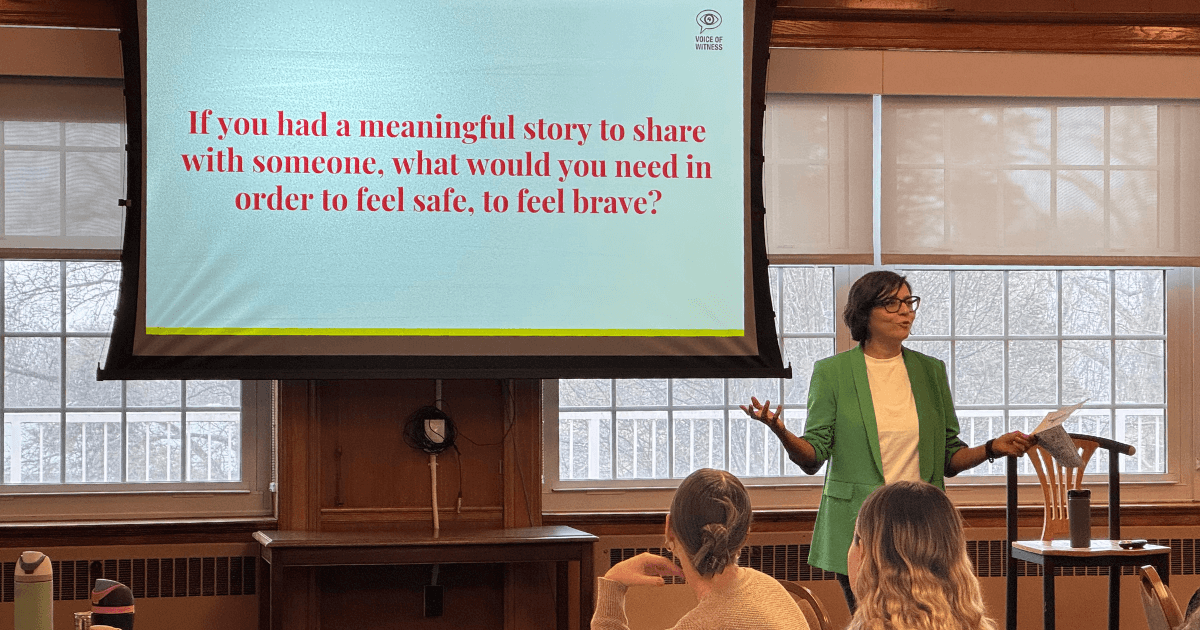
Much care and consideration are required to ensure storytelling practices are not extractive or harmful to those sharing their experiences. The following principles are informed by VOW’s nearly 15 years of experience conducting ethics-driven oral history storytelling and centering the voices of people impacted by—and fighting against—injustice. While we approach storytelling through oral history, these principles are relevant to many forms of community-based storytelling and programming.
1. Invest in relationships to build trust, mutual respect, and collaboration.
2. Prioritize ongoing informed consent and transparency throughout the process. Ensure narrators have ownership and control over their stories.
3. Honor authenticity, complexity, and the whole person, rather than approaching with preconceived expectations or framing narrators as victims or heroes.
4. Use a trauma-informed approach.
5. Position narrators as the experts.
6. Acknowledge and mitigate power dynamics and biases.
7. Ensure stories are accessible to narrator communities.
View or download the full resource to learn more about each ethical storytelling principle in practice.




